Topics:
Never Miss a Beat - Get Updates Direct to Your Inbox
FILTER:
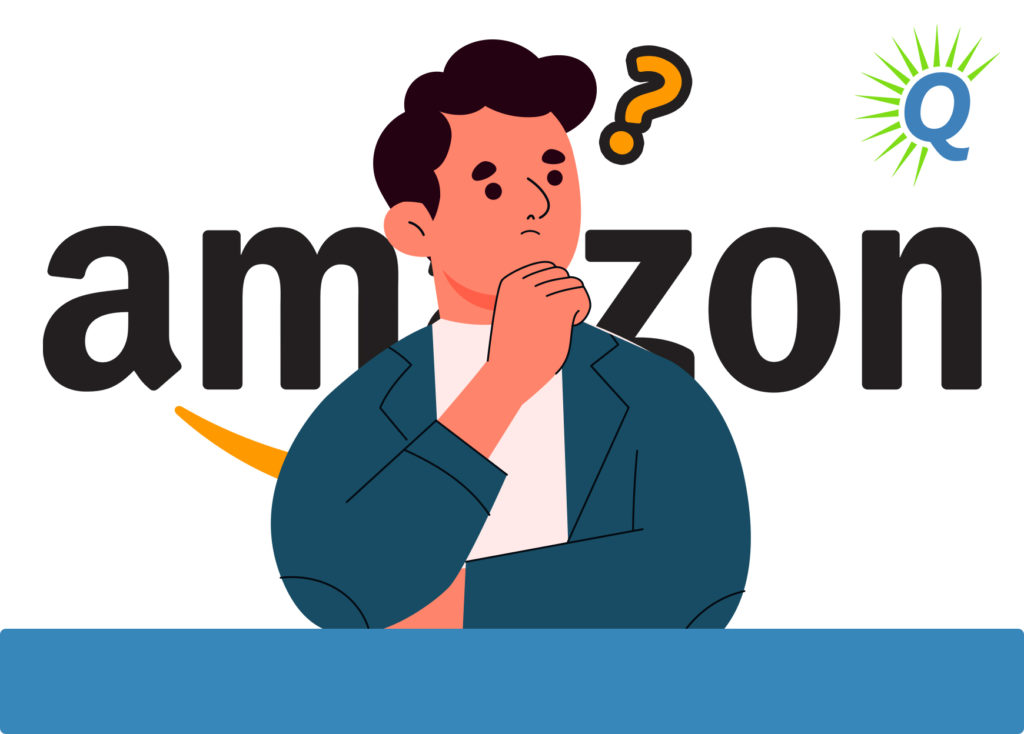

How to Find the Right Amazon Businesses to Buy
By Ian Drogin


Fortunately, you don’t necessarily need to start from zero if you want to reap the rewards of owning and running your own Amazon FBA business.
By purchasing an already successful Amazon business, you can attain a high level of income, time/location flexibility, and control over your lifestyle. All of this is possible without the hardships that come with bootstrapping an online business.
However, not all Amazon businesses will be right for you. Knowing how to find the right Amazon business to buy is essential in order to achieve your entrepreneurial and lifestyle goals. It can also save you enormous heartache and frustration throughout the process.
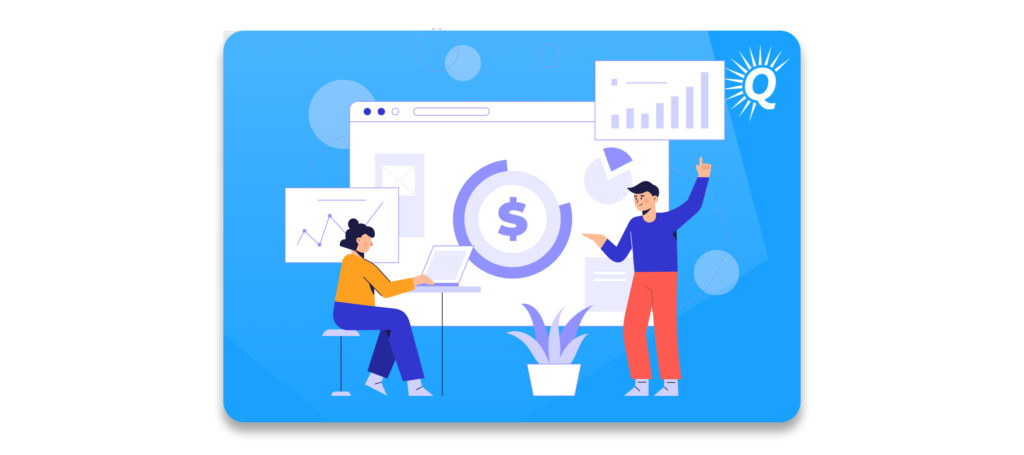

This article will explore all of the important elements to consider when buying an Amazon business.
How to Find an Amazon Business For Sale
What is fitting for one entrepreneur is not necessarily right for the next one. When looking for an Amazon business to buy, it’s important to start by identifying your individual goals. Doing so will help you navigate the acquisition market with confidence and clarity.
You can purchase an Amazon business for many different reasons, including:
- Investment opportunity
- Career change, or to escape a 9-5 job
- To bring more freedom and flexibility into your life
Knowing what your goals are will help you find the matching business attributes that are appropriate for you.
First and foremost, it is important to choose an Amazon business that meets your revenue and income needs. Likewise, the purchase price must fall within your budget. Beyond that, however, there are some general aspects to consider when purchasing an Amazon FBA business. These include:
- Does the business sell high-quality products?
- Does the business have opportunities for growth that play to your strengths?
- Are there barriers-to-entry for potential competitors?
- Can the business create synergies for your other business operations?
Product Quality
If you are and spending the money to purchase an Amazon business, it pays to choose one that sells premium quality products. Usually, those products don’t lead to endless headaches and unnecessary hassles.
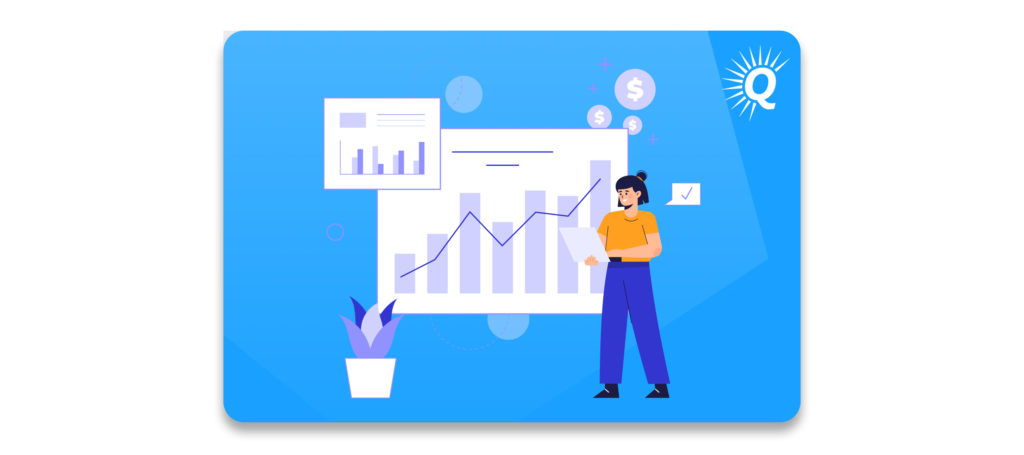

Products that make dubious claims about their effectiveness, products that break easily in transit, or products that are otherwise commonly defective should be avoided.
Growth Opportunities that Play to Your Strengths
Entrepreneurs are often good at a wide range of business skills. However, you likely have certain strengths that outshine your other competencies.
When purchasing an FBA business, it is important to choose a business that contains opportunities for growth in areas that play to your strengths.
For example, let’s say that you are an expert at paid traffic. In your search, it would be prudent to find a business that demonstrates overall success but has not optimized its paid traffic efforts.
If you were to acquire the business, you know that your paid traffic expertise could immediately generate additional revenues without an excessive amount of work.
Of course, this is just one example. There are numerous situations in which a business can realize immediate and easy growth just by bringing greater expertise to one area of its operations.
Barriers to Entry
New competitors enter the Amazon business landscape every day. However, some industries and niches are more difficult to enter than others.
When purchasing an already-established business, finding a niche that has natural barriers to entry (for potential competitors) helps to protect your place within that industry. In the long run, barriers to entry can help prevent your market from getting flooded with copycats.
Synergistic Effects
This consideration only applies to those who already own one or more businesses, either within Amazon or outside of the Amazon marketplace. If you do already own a business, it may be smart to purchase a business that not only generates its own revenue and income, but also serves to complement your existing business operations.
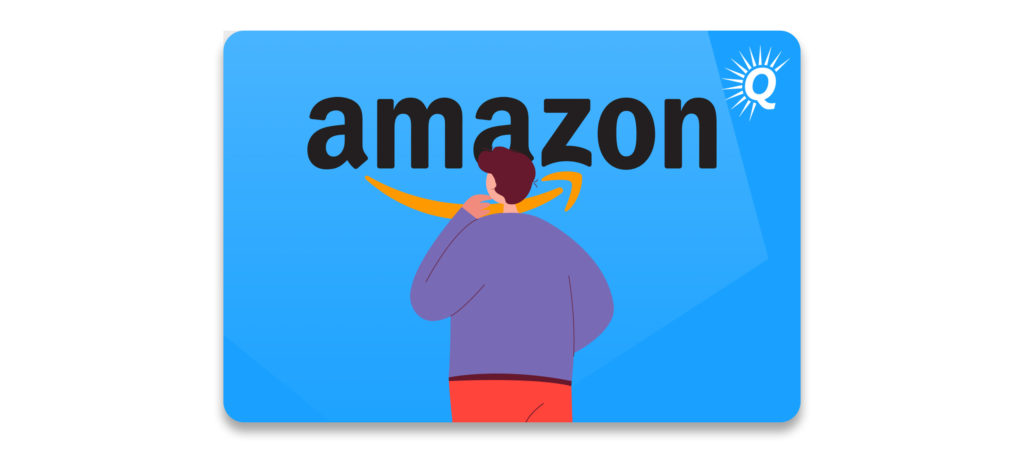

The newly acquired business could do this by bringing a new product to your already established audience. Conversely, the newly purchased business could bring its own audience to your already existing product. Other synergistic effects are also possible.
Where to Find Profitable Amazon Businesses for Sale
If you are considering purchasing an Amazon business for the first time, even just knowing where to start may feel overwhelming. Fortunately, there are some great tools that provide viewable business listings. In addition, business brokerage firms provide an active list of potential businesses to buy.
Getting Started as a Business Buyer
First off, identify what your budget and financial criteria are, and then consider the aspects discussed above. Once you have an idea of what you are looking for in an acquisition opportunity, business listing tools can help you identify specific businesses that satisfy your criteria.


However, working with an experienced business broker will help streamline the entire process. Business advisors can simplify the buying process by answering your questions and facilitating the deal flow.
Looking at FBA Business Data
Buying a business likely represents a significant financial investment for you. Therefore, it’s important to do your research..
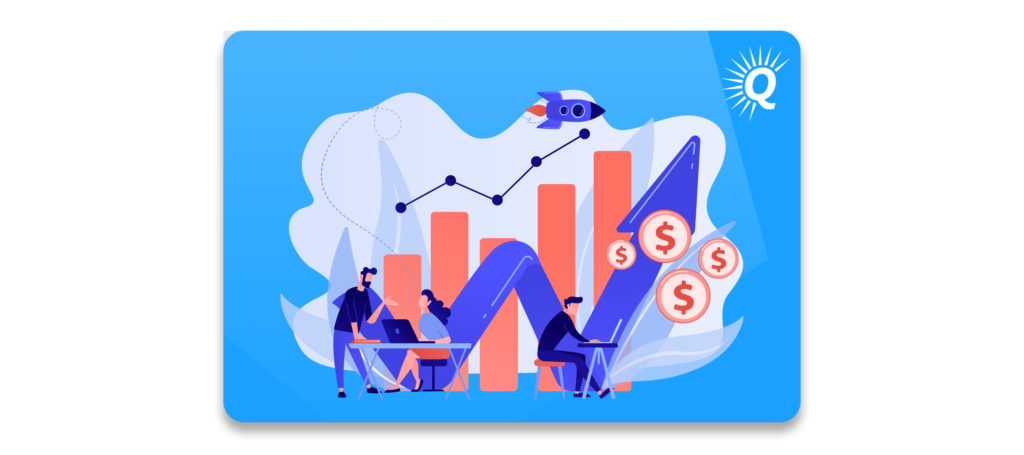

When it comes to Amazon businesses, knowing what performance characteristics to analyze will allow you to determine the overall health of a business. It will also help you make an informed decision about whether a given business represents a worthy investment opportunity.
Key Performance Indicators (KPIs)
Whether you are purchasing a small business or a larger business on Amazon, there are several KPIs that can help you judge the overall health and operational success of a business. These include:
- Product rankings
- Seller rating
- Order defect rate
- Product reviews
- Conversion rate
- Inventory Performance Index
- Fulfillment performance
Let’s take a brief look at each of these metrics to understand how they indicate the overall health of a business.
Product Rankings
As its name implies, an Amazon product ranking shows the overall success of a product on the Amazon marketplace versus other products in the same product category (ranked by units sold). For example, if a business sells cell phone cases and has a product ranking of #10, it sells the 10th most units in that category (likely “Cell Phone Cases” or “Cell Phone Accessories”).
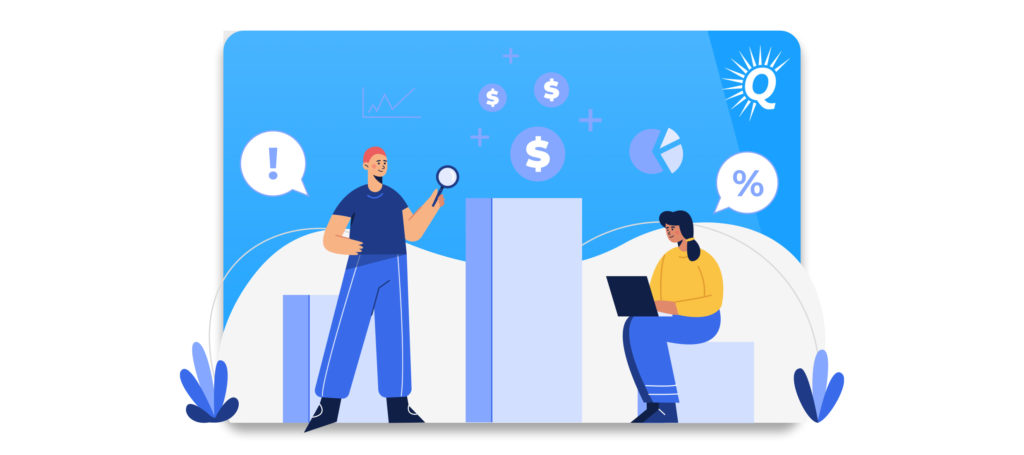

This ranking system does not necessarily reflect overall revenue. However, it does give a good indication of the overall success of a company or product. If an Amazon business has multiple products with low number rankings (good rankings), it is a good indication that the business is a well-run and successful company.
Software such as Jungle Scout or Helium 10 can help streamline the research process.
Seller Rating
A seller rating provides an idea of the overall health of an Amazon seller account, based on a 1-100 rating system. The seller rating takes into account several factors, including:
- Cancellations
- Shipping time
- Customer inquiries
- Reviews


Each factor positively or negatively impacts the overall seller rating. For example, if a product commonly experiences shipping delays or a high level of order cancellations, the seller rating will go down. Likewise, positive reviews or a low number of customer inquiries can help improve the seller rating.
Order defect rate
If you have ever ordered something from Amazon and received a broken or damaged product, you know just how frustrating this can be. A seller with a high rate of defective orders can be a sign of a troubled product. At the least, a high number of product defects can cause the seller a lot of distress with returns and exchanges.
Product Reviews
This one is fairly self-explanatory. A product with a higher review rating is more favorable than a product with a lower rating. Likewise, a product that has a high number of reviews relative to other products in the same category is more attractive to potential customers.
Conversion Rate
Also called the Unit Session Percentage Rate, the conversion rate is the number of customers who purchase a product compared to the number of potential customers who land on the product listing. This is an important metric to examine when evaluating a potential business.


The average conversion rate on Amazon is just about 12%. (For every 100 people who view the product, there will be 12 that purchase it.) However, a poor conversion rate is not necessarily a negative thing for a prospective business. If a low conversion rate is due to poor product descriptions or subpar product images, it could represent an easy opportunity for sales growth for the new business owner.
Inventory Performance Index
The Inventory Performance Index, or IPI, is an overall measure of how a business maintains its product inventory in FBA. It does this by looking at how much excess inventory is kept compared to sales numbers. A low IPI can incur inventory limits by Amazon.
Fulfillment Performance
The Fulfillment Performance reflects the defect rate, cancellation rate, and shipment rate that give an overall indication of the seller’s order fulfillment success. In general, an Amazon business should strive for a defect rate of 1% or lower on orders, a 4% or lower late shipment rate, and a 2.5% or lower pre-fulfillment cancellation rate.


By evaluating all of these metrics you can get a sense of the overall performance and organizational strength of a prospective Amazon business.
What Information Should an Amazon Seller Be Willing To Share With Prospective Buyers?
When an Amazon FBA business is listed for sale, much of the more detailed information on the Amazon account is not advertised directly on the business listing. General performance indicators such as the revenue, income, years in business, industry, sources of income, and some basic growth statistics will be provided for all to see. In addition, the business listing will often provide a brief description of the business and its operations.
However, for the protection of the business’s identity, more detailed information about the seller account is often not immediately available on the listing.
Non Disclosure Agreements
In order to have access to more detailed information, an interested buyer will often need to sign a Non Disclosure Agreement (NDA) to ensure confidentiality.
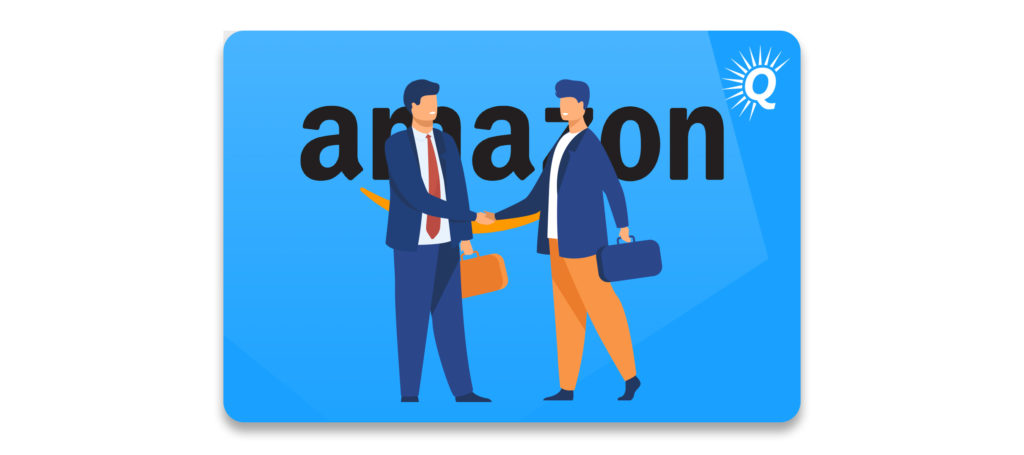

After an NDA is signed, the prospective buyer will be able to view the marketing package. The marketing package contains profit and loss statements, traffic trend graphs, images, and all data necessary to make a fully informed purchase decision.
In addition to the data, you will have access to a client interview which provides further information about the day-to-day operations of the business, working conditions, time commitment, and more.
Due Diligence
Once an offer has been accepted and a letter of intent has been signed, the due diligence process is started. This is a period of time where you comb through all of the business data to verify its accuracy, ask pertinent questions, and ensure that the business is as it has been advertised.
What Should You Know Before Buying an Amazon Business?
To choose the right business for you, it is important to know what qualities you are looking for in an Amazon business as well as knowing what data to evaluate.
In addition, there are several more factors to consider when choosing an Amazon business.
The Four Pillars of Value
Adding to what we have discussed above, there are four important general elements to consider when analyzing a potential acquisition. At Quiet Light, we call these the Four Pillars of Value.


The Four Pillars of Value include:
- Growth
- Risk
- Transferability
- Documentation
Growth
While the overall revenue and income of a business are quite important, it is also important to look at the growth trend. If a business shows strong year-over-year growth, it likely indicates favorable market conditions, a well-run business, or both. Strong growth will often drive up the price of the business.
Likewise, if a business is in decline, it is important to determine the reasons for this. It could indicate negative market trends, which could be a red flag.
However, if the decline is due to a more superficial reason such as supply chain issues or a decline in marketing spend, the business may still be a worthy investment.
Risk
Risk is a critical factor to consider when evaluating a business. When it comes to Amazon businesses, there are three important categories of risk to take into consideration. These include:
- Supply chain risk
- Competition
- Product line stability


Disruptions in the supply chain can be enormously costly to an Amazon business. Not only does a disruption cause a loss of sales, but it can also damage the product ranking and supplier rating. Choosing businesses and products that have stable supply chains helps to mitigate this risk.
Competition is another aspect to think about when evaluating the overall risk of an Amazon business. While the competition for a given product may be low at the time of evaluation, perhaps the market will become flooded with similar products in the future. This could render an otherwise profitable product unprofitable. As we touched on previously, choosing products that are more isolated from competition can help to protect the future success of that product.
Product line stability refers to the long-term stability of a given product. If the product is part of a fad, sales may boom in the short run and then slump dramatically. Often, it is more prudent to invest in a commonly used product that will not see a decrease in demand.
Transferability
Transferability is a measure of how easy it is to transfer the business from one owner to the next. If a business is run by a single individual and has no clear standard operating procedures (SOPs) or is disorganized, it will be more difficult to take over the business and run it successfully yourself. In addition, it will be more difficult to sell it down the road if that is what you decide.
However, if the business has clear SOPs and a well-functioning team in place, it will be much easier to successfully transfer the business from owner to owner.
Documentation
Clear and well-organized documentation provides several benefits. Most directly, it allows you to get a solid understanding of key business performance metrics so that you can make an informed decision.


Further, proper documentation is an indication that a business has SOPs in place and is a well-run organization, saving you time, energy, and headaches.
How Long Does it Take To Buy an Amazon Business?
There is no set timeframe for buying an Amazon business. A lot of this will depend on how long it takes for you and your broker to find an attractive business for you to purchase.
Once you do find a business that meets your needs, it can often take 30-60 days for the deal to close, depending on your financing method.
If you are making the purchase with an SBA loan, a lot is dependent on how quickly the loan is approved. Usually, approval can happen within 30-60 days.
During this period, you will be going through the due diligence process. If issues arise during due diligence, it may add extra time to the overall closing process.
How To Make an Offer on an Amazon Business
Identifying an appealing business is only part of the process of acquiring an Amazon business. You still must make a successful purchase offer (not always a guarantee) and overcome the competition.
While making a desirable monetary offer is obviously important, a winning offer is often about much more than just the numbers.
Standing Out as a Buyer
Approaching the transaction with an aggressive attitude is often not the best strategy for a buyer. Solely focusing on getting the most out of the deal for yourself without considering the needs and desires of the seller is often a recipe for failure.


Remember that the business you are buying likely represents years of hard work and inspired vision for the seller. Hours have been spent building the business to what it is today, and they may have desires for the business even after they sell it.
Communicating with the Seller
Taking the time to truly listen to the seller and addressing their hopes and fears, in an honest manner, can help you stand out from the pack of offers that they may be receiving
It will also help to have solid future plans for the business after the sale and to communicate this to the seller. They will likely want to know that their business is in competent hands. Likewise, do your homework and be sure to ask intelligent questions when you speak with them; this will show that you are not wasting their time and are, in fact, a serious buyer.
Working with a Business Advisor
Buying a business and becoming an Amazon FBA seller can be a complex process. From identifying the right business, evaluating the performance metrics, communicating with the seller, and negotiating a successful offer, there are plenty of opportunities for little mistakes or oversights to derail the deal.
An experienced and honest business advisor can help guide you through every step in the process. Your advisor has completed numerous business transactions and knows the ins and outs of the industry. They will help you know when a business represents an attractive opportunity or when to walk away from a deal, if necessary. They will also advise you on the best way to approach the seller, and what to look for in terms of the key performance indicators.


Simply put, a business broker can help guide you through one of the more important decisions of your life.
Summary
Purchasing an Amazon business and entering the Amazon marketplace as an FBA seller can be an extremely exciting opportunity. It can allow you more freedom, add an additional income stream, and create the lifestyle that you truly want. However, not all Amazon businesses are right for you.
By understanding what to look for from both a strategic and practical sense, and knowing how to evaluate key performance metrics, you can work to identify an Amazon business that will meet your needs.
In addition, knowing how to approach and communicate with a seller will help you stand out from the pack of potential buyers. Working with a business advisor will streamline the entire process and help you to successfully land your first Amazon business acquisition.





